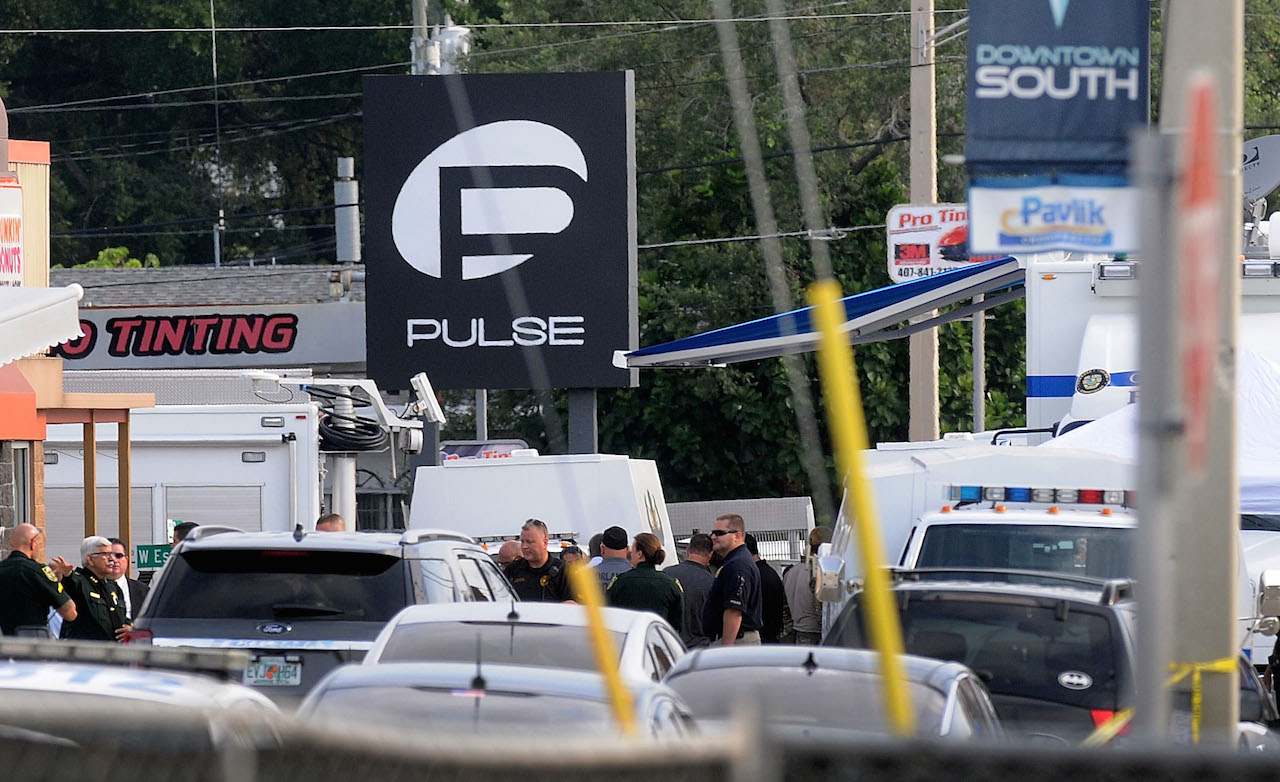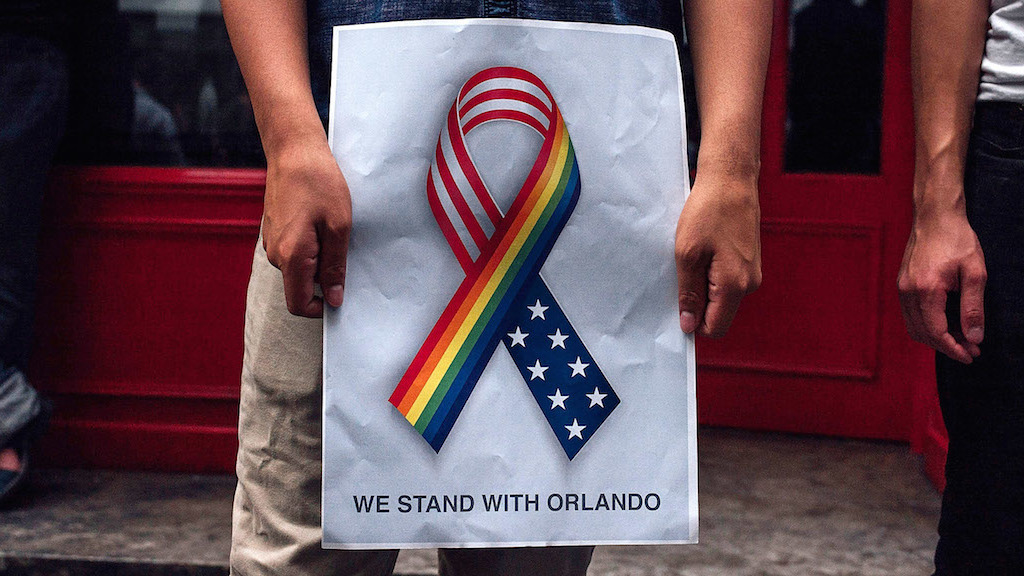For metallers, gigs and festivals aren’t just an opportunity to watch live music, they’re a place we can belong. It’s where we can be ourselves, where we can relax with people like us and let out the bits we have to gloss over in less accepting company. It’s where you’re not judged for your Megadeth t-shirt or your long hair or your tattoos, and where we can show solidarity with each other.
Now imagine what it’s like if everyday life means not just dressing differently, tying your hair back, covering up your Baphomet tattoo and trying not to mention Rotting Christ in polite company. Imagine if you had to use gender-neutral pronouns about your partner every day because you’re worried people might react badly if you use “he” not “she”. Imagine if holding hands with your girlfriend in public came with the worry of someone shouting “dyke” at you in the street, or even the threat of physical violence. Imagine if a friendly peck on the cheek to the person you love become a risky, vaguely political-statement-type action you have to weigh up the potential consequences of. Imagine your family knowing who you are may risk you having a family at all. Imagine which public toilet you’re allowed in is a matter of heated debate by lawmakers. Imagine what you’re keeping in is who you are and most of your life.

For many gay, lesbian, bi and trans people, designated clubs and pubs that are “ours” are the only places outside of our own homes we can truly be ourselves, where our actions can be free and relaxed without worrying what anyone’s going to think. If you’re a metalhead, you’ve probably got more insight than most into how important those places can be. And, if you’re a metalhead, you don’t have to imagine what it would be like to hear that one of “our” places had been the scene of violence and death (none of us, much as we might like otherwise, are likely to forget the name “Bataclan” any time soon), or what it might feel like to know people want you dead for who you are (RIP Sophie Lancaster).
Hits you where you fucking live, don’t it?
I have no clue what the families and friends and survivors of the attack on Orlando gay club Pulse are going through right now, and I’m not going to insult them by pretending otherwise. The thought of what one victim, Eddie Justice, had to go through, hiding in a toilet texting his mother knowing he was about to be murdered, has me vacillating between horror, rage and sorrow – and that’s without even thinking about what his poor mother had to go through, and will probably go through for the rest of her life.
- Joey Jordison: Illness left me unable to play drums at end of my Slipknot career
- Does Metal Have A Problem With Race?
- Cynic heroes on being gay in a metal band
Ultimately, the kind of hate that leads to heinous crimes like this is going to be defeated by one thing: solidarity. And we need to get better at our part in that. The metal community is, on the whole, welcoming and accepting of The Other – including queers – in a way that most social groups aren’t, probably because we’ve got a bit more insight into what it’s like being an outsider than most. But it often doesn’t appear that way – partially because metal fans are historically a bit crap at telling overt homophobes to piss off when they deserve it, but mostly because we haven’t done too much to actively say “you’re welcome here too”. And right now, we need the latter more than ever.
It’s perhaps apt that one of the most overt statements of support in the last decade came from a band from Orlando. Trivium’s much-maligned The Crusade featured And Sadness Will Sear, a track about the homophobic beating to death of a young man name Matthew Shepard. It’s time metal did this more – not necessarily writing songs about it, but overtly acknowledging that queers are welcome here too. Because ultimately, there’s a lot in common between a gay bar and a black metal gig (and not just that both are camp as tits and aren’t averse to a bit of leather).
It’s slowly becoming more socially acceptable to be publicly gay, both in metal circles and the public at large. But still, aside from Cynic’s Paul Masvidal and his former bandmate Sean Rienert, Steve Brooks from Torche, Gaahl and Rob Halford, there’s not that many out musicians around. And speaking personally, I’ve only ever been to one metal gig (Nightwish at Wembley, in case you wondered) where I’ve been made to feel completely comfortable being visibly out.
We can change this. We can use an awful, unbearable tragedy as a catalyst to do better, to show that metalheads are a community where the outsider is welcome and we look out for each other. It’s not about saying “fuck you!” to anyone, it’s about saying “come in, you’re safe here” to people not quite sure whether they’re welcome or not.
Orlando was the place Chuck Schuldiner founded Death, and that put it on the metal map for the best of reasons. Right now, it’s on our TV screens and Twitter feeds because of tragedy and bigotry and murder. There is no good in this, and those we have lost deserve better than trite shit about something positive coming from tragedy.
All we can do is to try and stand up for each other. Because if we don’t, how can we ask anyone to stand up for us?
You can donate to the Pulse Tragedy Community Fund to help the victims and their families.
